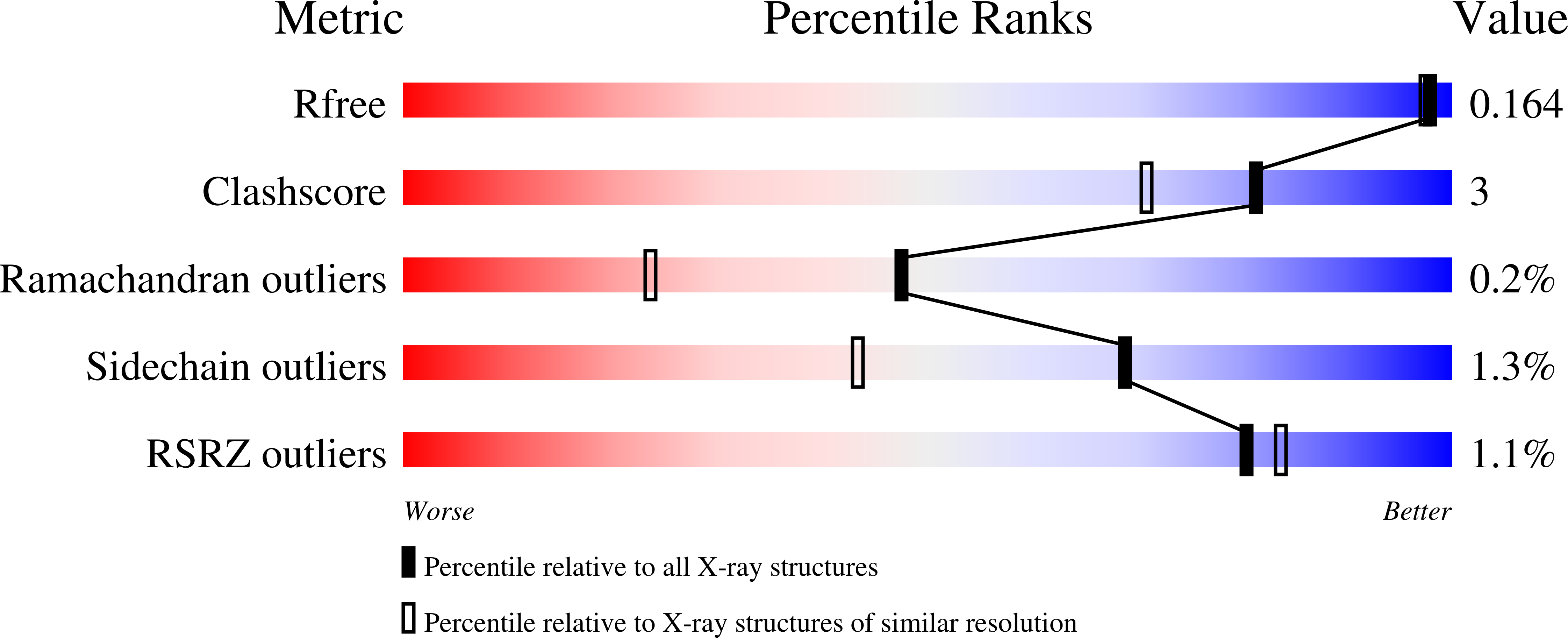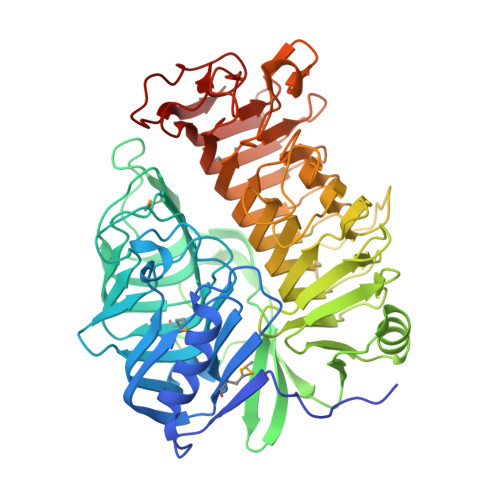Active site and laminarin binding in glycoside hydrolase family 55.
Bianchetti, C.M., Takasuka, T.E., Deutsch, S., Udell, H.S., Yik, E.J., Bergeman, L.F., Fox, B.G.(2015) J Biol Chem 290: 11819-11832
- PubMed: 25752603
- DOI: https://doi.org/10.1074/jbc.M114.623579
- Primary Citation of Related Structures:
4PEW, 4PEX, 4PEY, 4PEZ, 4PF0, 4TYV, 4TZ1, 4TZ3, 4TZ5 - PubMed Abstract:
The Carbohydrate Active Enzyme (CAZy) database indicates that glycoside hydrolase family 55 (GH55) contains both endo- and exo-β-1,3-glucanases. The founding structure in the GH55 is PcLam55A from the white rot fungus Phanerochaete chrysosporium (Ishida, T., Fushinobu, S., Kawai, R., Kitaoka, M., Igarashi, K., and Samejima, M. (2009) Crystal structure of glycoside hydrolase family 55 β-1,3-glucanase from the basidiomycete Phanerochaete chrysosporium. J. Biol. Chem. 284, 10100-10109). Here, we present high resolution crystal structures of bacterial SacteLam55A from the highly cellulolytic Streptomyces sp. SirexAA-E with bound substrates and product. These structures, along with mutagenesis and kinetic studies, implicate Glu-502 as the catalytic acid (as proposed earlier for Glu-663 in PcLam55A) and a proton relay network of four residues in activating water as the nucleophile. Further, a set of conserved aromatic residues that define the active site apparently enforce an exo-glucanase reactivity as demonstrated by exhaustive hydrolysis reactions with purified laminarioligosaccharides. Two additional aromatic residues that line the substrate-binding channel show substrate-dependent conformational flexibility that may promote processive reactivity of the bound oligosaccharide in the bacterial enzymes. Gene synthesis carried out on ∼30% of the GH55 family gave 34 active enzymes (19% functional coverage of the nonredundant members of GH55). These active enzymes reacted with only laminarin from a panel of 10 different soluble and insoluble polysaccharides and displayed a broad range of specific activities and optima for pH and temperature. Application of this experimental method provides a new, systematic way to annotate glycoside hydrolase phylogenetic space for functional properties.
Organizational Affiliation:
From the Great Lakes Bioenergy Research Center, University of Wisconsin-Madison, Madison, Wisconsin 53706, the Department of Chemistry, University of Wisconsin-Oshkosh, Oshkosh, Wisconsin 54901.

















